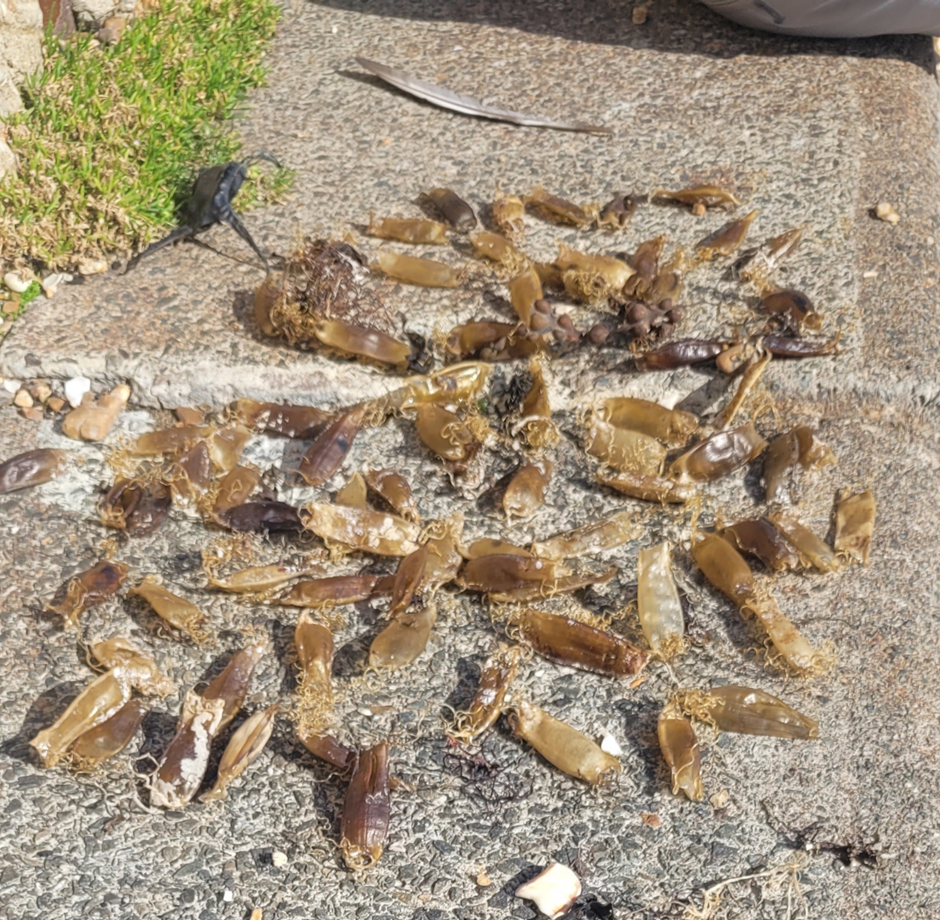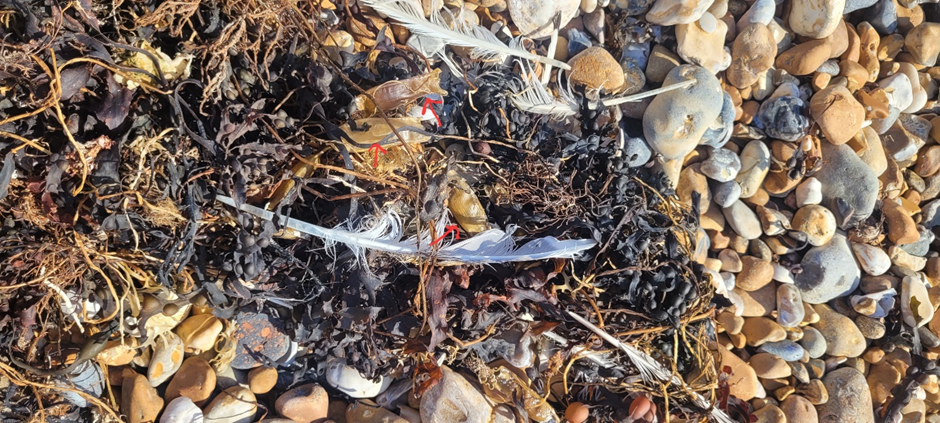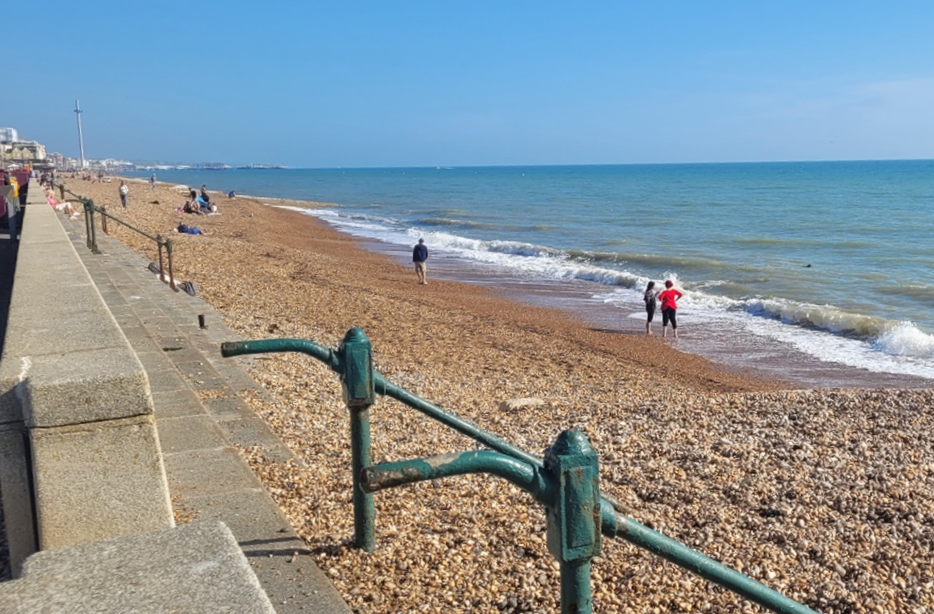By Helen Stewart
Wild Coast Sussex Volunteer
Having recently retired, I have volunteered with Wild Coast Sussex to help identify mermaid’s purses on local beaches as part of the Shark Trust’s Great Eggcase Hunt.
On a very wet and windy day in September, I and other volunteers were instructed on the basics of mermaid purse identification by members of the Wild Coast Sussex team. A mermaid’s purse is an egg case that surrounds the embryo of oviparous skates. In Sussex, the most common egg cases found are deposited by the Small-Spotted Catshark (AKA Lesser-spotted Dogfish or Rock Salmon) the Undulate Ray, the Spotted Ray and the Thornback Ray.

My first venture onto the beach on Hove seafront yielded no egg cases, despite searching two beaches for about 30 minutes. However, the following days were more fruitful. On a beach about 100 meters west of my first search, an abundance of cases were found. In approximately 20 minutes I had collected 30 cases from the Spotted Catshark and 50 in total from Undulate and Spotted Rays. Many more could have been collected if I had had more storage space!

Venturing back to the same beach five days later for a casual search resulted in 102 spotted catshark cases being collected in a 15-minute search of an area of about 2 x 3 metres. The majority of the catshark cases were entwined in the seaweed washed far up the beach.
As an individual Spotted Catshark can lay up to 240 egg cases per year, there are plenty more out there to find.
Happy Hunting!
